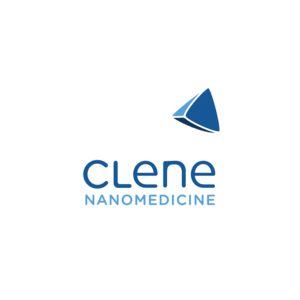
Clene Nanomedicine Announces Top-Line Results from Phase 2 RESCUE-ALS Clinical Trial
November 3, 2021
- RESCUE-ALS Phase 2 Trial did not meet primary MUNIX biomarker endpoint or secondary FVC endpoint at week 36; MUNIX efficacy signal was observed at week 12 (p=0.057)
- MUNIX trial results demonstrated protection of lower motor neurons in the pre-specified subset of limb onset ALS subjects (Wk12, p=0.0385; Wk36, p=0.0741), which represents approximately 70% of the ALS population
- Statistically significant reductions in clinically relevant outcomes including ALS disease progression (p=0.0125), ALSFRS-R responder analysis (p=0.035), and improved ALS specific quality of life (p=0.018)
- Evidence for potential long-term survival benefit
- Results for Healey ALS Platform Trial Expected in the Second Half of 2022
Clene Inc. along with its subsidiaries “Clene” and its wholly owned subsidiary Clene Nanomedicine Inc., recently announced top-line data from RESCUE-ALS, a Phase 2 clinical trial evaluating CNM-Au8 as a disease modifying treatment for people with early amyotrophic lateral sclerosis (ALS).
The trial did not meet the primary or secondary endpoints – Motor Unit Number Index (MUNIX) and forced vital capacity (FVC) – at week 36. However, an efficacy signal was observed for the MUNIX endpoint at week 12 (p=0.057). Furthermore, in a pre-specified analysis in the subset of limb onset ALS, CNM-Au8 demonstrated a significant treatment effect in MUNIX at week 12 (p=0.0385) and a trend for improvement at week 36 (p=0.0741). Limb onset ALS accounts for approximately 70% of the ALS population. MUNIX is a neurophysiological biomarker that estimates the number of functioning lower motor neurons serving selected muscles.
Clinically relevant exploratory endpoints through trial week 36 demonstrated significant benefits with CNM-Au8 treatment, including slowing ALS disease progression (p=0.0125), decreasing the proportion of participants with an ALS Functional Rating Scale Revised (ALSFRS-R) 6-point decline (p=0.035), and improving quality of life as measured by the ALS Specific Quality of Life (ALSSQOL-SF) (p=0.018). In addition, RESCUE-ALS showed evidence for a potential long-term survival benefit when comparing the survival of the trial population to the validated ENCALS predictive model1.
“These data are very encouraging to us in the ALS research and treatment community as they demonstrate clinical benefits with CNM-Au8 treatment in outcomes that matter to patients and provide evidence for improved long-term survival,” said Professor Matthew Kiernan, AM MBBS(Hons), PhD, DSc, FRACP, FAHMS, Bushell Chair of Neurology, University of Sydney and one of the trial’s clinical advisors. “RESCUE-ALS was a proof-of-concept trial intended to establish that treatment of neuronal energetic failure can provide disease-modifying effects in ALS. I am pleased to see the potential effectiveness of CNM-Au8 demonstrated in this trial, and it is important to confirm these results in a larger clinical trial.”
Rob Etherington, Clene’s Chief Executive Officer, stated, “We believe these results show the potential of CNM-Au8 to bring meaningful benefit to people living with ALS. Befitting of Lou Gehrig, whose legacy is intertwined with the disease, we swung for the fences and ended with a stand-up triple. In the second half of next year, we expect to report results from the HEALEY ALS Platform Trial with the objective of confirming CNM-Au8 as an effective disease-modifying therapy for people with ALS.”
RESCUE-ALS was a 36-week randomized, placebo-controlled Phase 2 clinical trial that enrolled 45 patients with early ALS, randomized 1:1 to treatment with CNM-Au8 at 30 mg daily or matching placebo on top of standard of care. The primary endpoint of the trial was the percent change of the sum of MUNIX from baseline to week 36. Secondary endpoints were the change in FVC and the absolute change in MUNIX values to week 36. Exploratory endpoints included multiple clinically relevant measures of ALS: disease progression, ALSFRS-R decline, and ALSSQOL-SF.
CNM-Au8 was found to be well-tolerated through 36 weeks of oral daily dosing. There were no reported serious adverse events (SAEs) related to CNM-Au8 treatment. Treatment-emergent adverse events were predominantly mild-to-moderate in severity. The most frequently reported adverse events associated with CNM-Au8 treatment included aspiration pneumonia (n=3) and transient gastrointestinal distress (n=2). Topline results from RESCUE-ALS are expected to be presented at the upcoming International Symposium on ALS/MND, which will take place Dec. 8-10, 2021.
Robert Glanzman, MD, FAAN, Clene’s Chief Medical Officer, concluded, “The results of RESCUE-ALS add to our expanding body of evidence that cellular energetic failure is an important pathophysiological mechanism in ALS. We thank the trial participants and their families for their willingness to engage in clinical research, the site investigators for their research excellence and dedication to patients, and FightMND of Australia for substantially funding the trial.”
Bec Sheean, Research Director of FightMND commented, “FightMND is committed to finding new treatment options for motor neurone disease. We awarded Clene a grant in 2019 to support the conduct of this Phase 2 clinical trial with CNM-Au8 in Australia. These clinical trial results are encouraging for people with ALS. By achieving clinically relevant endpoints, this trial demonstrates the potential for CNM-Au8 to support neuronal health. We are excited to see CNM-Au8 continue its advancement into the clinic so that we can bring this potentially transformative treatment to patients.”
Source: Clene Inc.
1 Westeneng et al. Lancet Neurol. 2018 May;17(5):423-433.